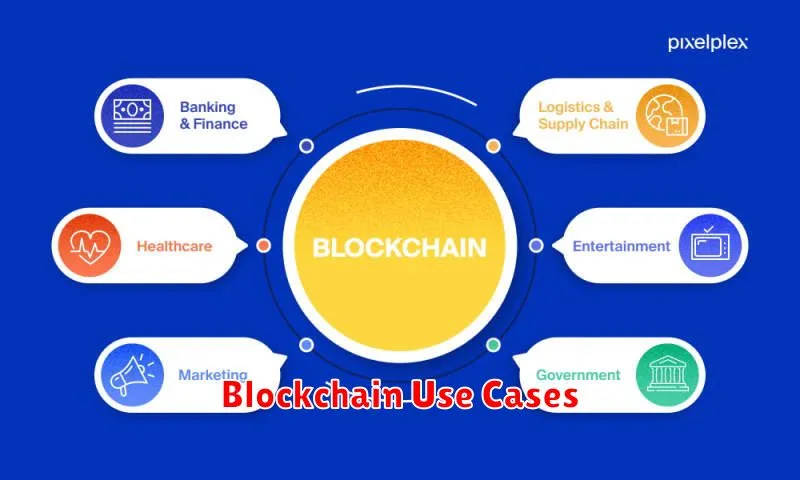The blockchain revolution is reshaping industries globally, and this article explores the top 5 blockchain applications currently making the biggest impact. From revolutionizing supply chain management and enhancing financial transactions to securing digital identities and powering innovative decentralized applications (dApps), we delve into the transformative power of blockchain technology across diverse sectors. Discover how cryptocurrency, smart contracts, and distributed ledger technology (DLT) are driving efficiency, transparency, and security in this rapidly evolving technological landscape. Prepare to be amazed by the practical applications of blockchain and its potential to redefine the future.
Blockchain in Finance: Smart Contracts
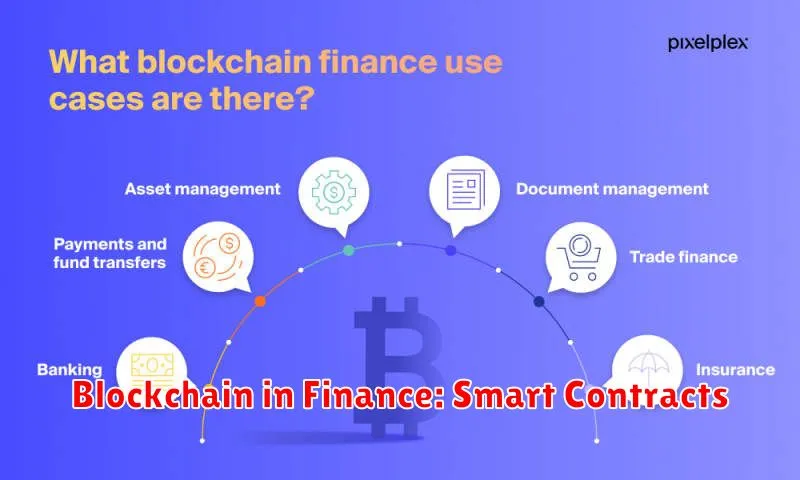
Smart contracts are self-executing contracts with the terms of the agreement between buyer and seller being directly written into lines of code. This eliminates the need for intermediaries, reducing costs and increasing efficiency.
In finance, this technology is revolutionizing various sectors. Decentralized finance (DeFi) applications leverage smart contracts to offer services like lending, borrowing, and trading without relying on traditional financial institutions. This enhances transparency and security.
Automated payments and settlements are another key area where smart contracts excel. Once predefined conditions are met, payments are automatically triggered, improving speed and accuracy. This is particularly beneficial for international transactions and supply chain finance.
Furthermore, smart contracts facilitate the creation of new financial instruments and improve existing ones. Tokenization of assets, for example, allows for fractional ownership and easier trading of previously illiquid assets.
Despite the potential, challenges remain. Security vulnerabilities in smart contract code can have severe financial consequences. Therefore, robust auditing and security measures are crucial for widespread adoption. Regulatory uncertainty also poses a barrier to broader implementation.
Supply Chain Transparency with Blockchain
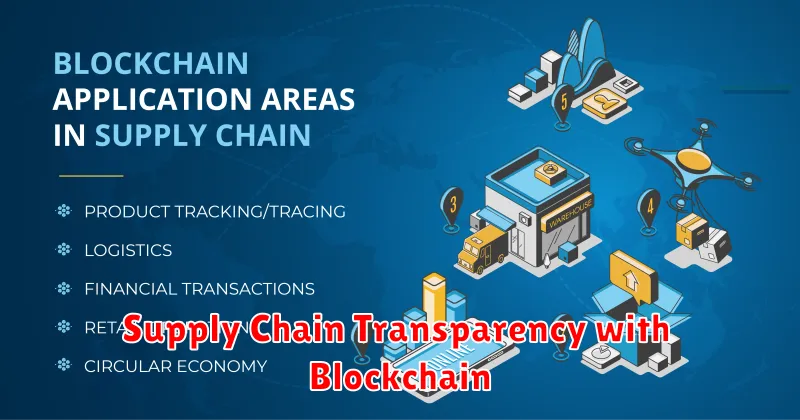
Blockchain technology offers a revolutionary solution to enhance supply chain transparency. Its decentralized and immutable nature allows for the secure tracking of goods from origin to consumer.
By recording every transaction and movement on a shared, encrypted ledger, blockchain eliminates information asymmetry and improves traceability. This increased visibility allows businesses to identify and address inefficiencies, improve accountability, and combat counterfeiting.
Real-time data access empowers stakeholders with a clear understanding of product provenance, improving responsiveness to disruptions and enhancing overall supply chain efficiency. This heightened transparency also builds greater trust and confidence amongst all participants, fostering stronger relationships across the supply chain.
Furthermore, the immutability of blockchain records provides a verifiable audit trail, enabling easier compliance with regulations and enhancing brand reputation. This ultimately leads to improved product safety and reduced risks for businesses.
In conclusion, the application of blockchain in supply chain management represents a significant advancement, fostering greater transparency, efficiency, and trust throughout the entire process.
Healthcare Solutions Powered by Blockchain

Blockchain technology offers transformative solutions within the healthcare industry, addressing critical challenges related to data security, interoperability, and transparency. Data security is significantly enhanced through blockchain’s immutable ledger, protecting sensitive patient information from unauthorized access and breaches.
Interoperability improves with blockchain’s ability to seamlessly share patient records across different healthcare providers and systems. This eliminates data silos and facilitates better coordinated care. Transparency is increased as all transactions and data updates are recorded on a publicly auditable ledger, fostering trust and accountability.
Specific applications include secure storage and management of electronic health records (EHRs), streamlined drug supply chain management to combat counterfeiting, and efficient and secure sharing of medical research data. Blockchain’s potential to revolutionize healthcare lies in its capacity to improve patient care, reduce costs, and foster greater trust in the system.
Gaming and NFTs: A Blockchain Revolution
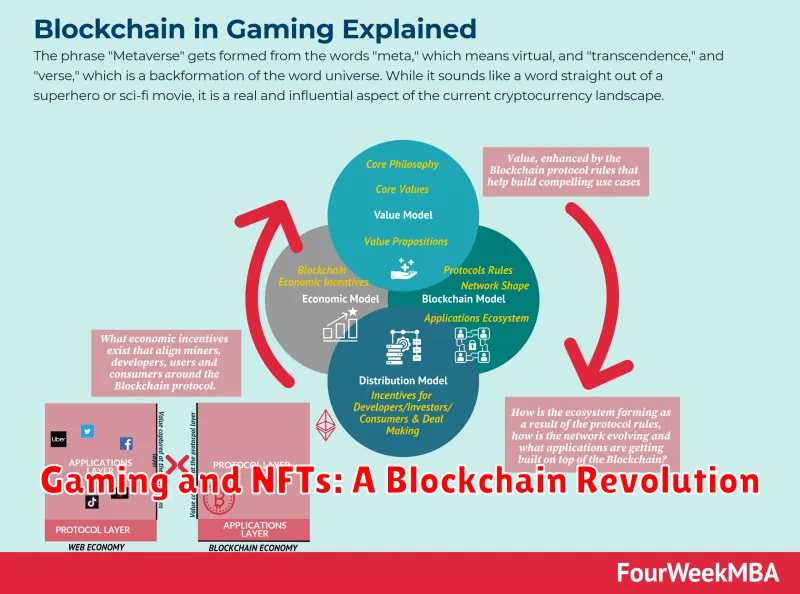
The integration of blockchain technology and non-fungible tokens (NFTs) is revolutionizing the gaming industry. This merger offers players unprecedented levels of ownership and control over in-game assets.
NFTs allow gamers to truly own digital items, such as skins, characters, and virtual land, unlike traditional games where these assets are merely licensed. This ownership is verifiable and secure through the blockchain’s immutable ledger.
The decentralized nature of blockchain eliminates intermediaries, fostering a more transparent and efficient marketplace for in-game assets. Players can buy, sell, and trade these assets directly with each other, creating new economic opportunities within the gaming ecosystem.
Furthermore, blockchain enables the creation of play-to-earn models, where players can earn cryptocurrency or NFTs by participating in games. This generates new revenue streams for developers and offers players a chance to monetize their skills and time.
While still in its early stages, the combination of gaming and NFTs represents a significant shift in the industry, empowering players and unlocking new possibilities for game development and monetization. The technology promises a more engaging, transparent, and economically rewarding gaming experience.
Decentralized Cloud Storage Systems
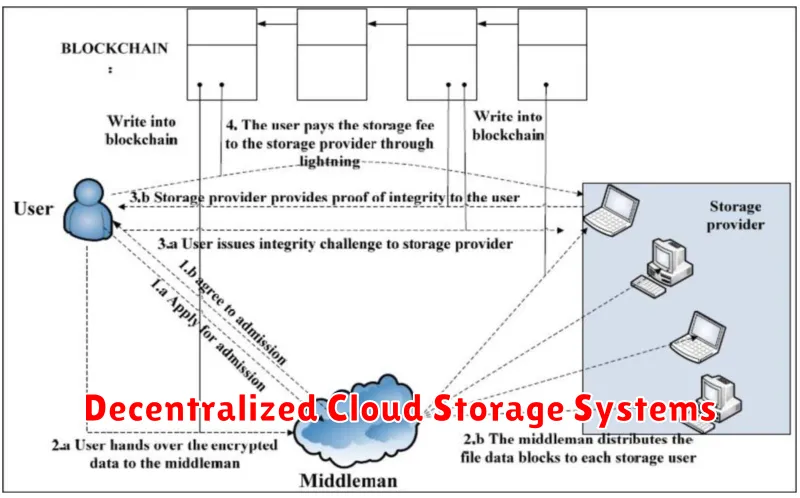
Decentralized cloud storage systems, powered by blockchain technology, offer a revolutionary approach to data management. Unlike traditional centralized systems, which rely on a single entity for storage and control, decentralized systems distribute data across a network of nodes. This distributed ledger technology ensures data security, transparency, and data integrity.
Key benefits include enhanced data security through cryptographic hashing and encryption, increased resilience against single points of failure, and greater user control over their data. The elimination of single points of failure makes the system resistant to censorship and data breaches. Users can also benefit from reduced costs and improved data availability due to redundancy.
Furthermore, these systems foster a more trustless environment, as data is not controlled by a single entity. This is especially critical for sensitive information, allowing users to maintain ownership and control over their own data. Improved scalability and efficiency are also potential benefits as the network grows and adapts to demand.
Challenges remain, however, including scalability limitations, potential complexities in data retrieval, and the need for robust consensus mechanisms to ensure data consistency across the network. Despite these challenges, the potential benefits of decentralized cloud storage are significant, driving innovation and adoption across various industries.
